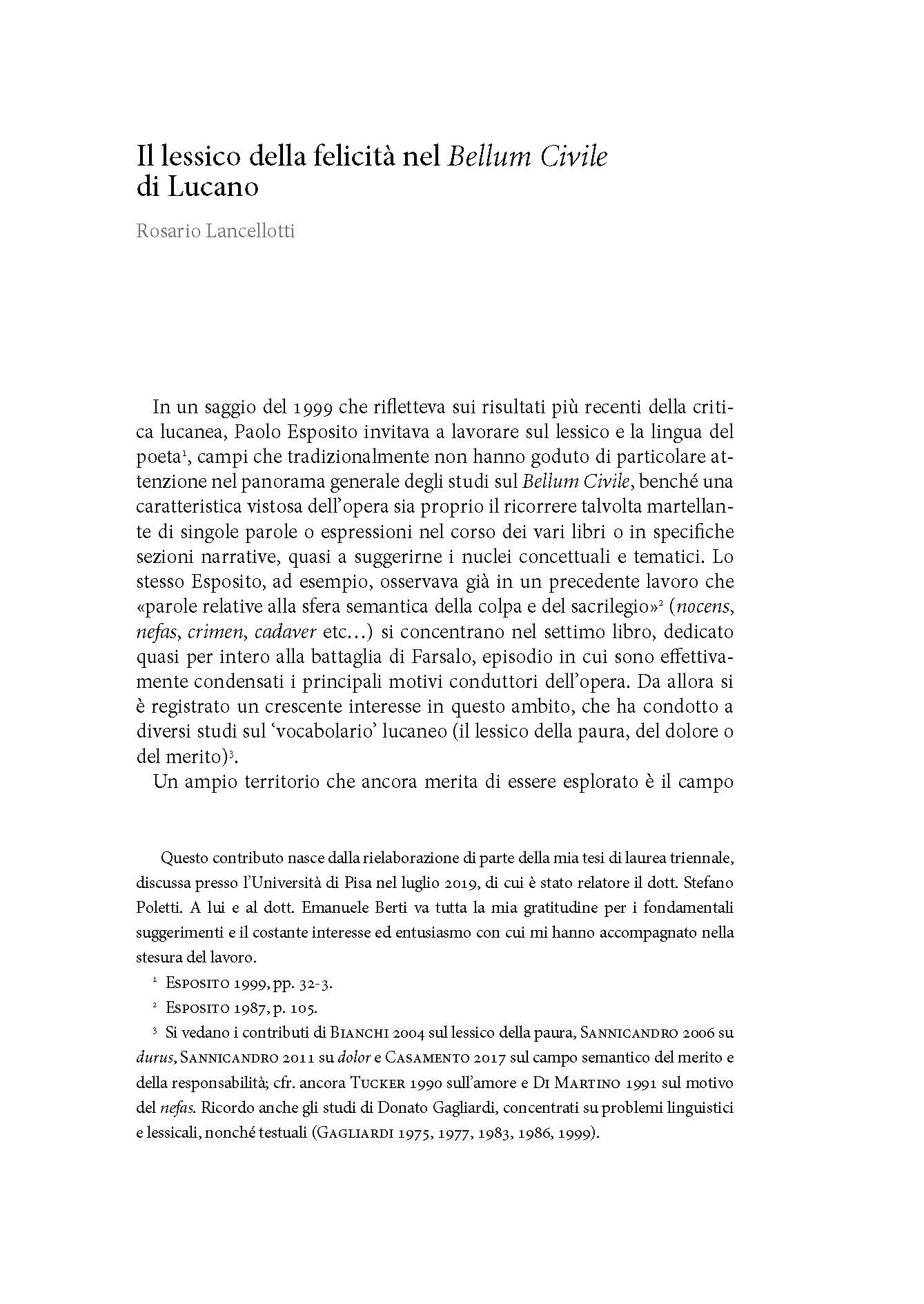Il lessico della felicità nel Bellum civile di Lucano
Contenuto principale dell'articolo
Abstract
In his poem, Lucan often employs the instruments of paradox and irony to expose the moral subversion of civil war. In this respect, his use of the semantic field of happiness, especially of terms such as felix, laetus, beatus or gaudium, is particularly emblematic. The lexicon of felicitas frequently appears in relation to cruel and tyrannical characters (primarly Caesar): while these enjoy the favor of Fortune undeservedly, the civitas as a whole can not be felix. An even more complex case is the one of Pompey. The psychological transformation he undergoes after the defeat of Pharsalus is accompanied by a meaningful semantic shift in the use of felix. This adjective progressively loses all negative connotations and instead comes to designate - in the last words of the general and then in the epitaph pronounced by Cato - true happiness, achieved only at the very moment of death.

